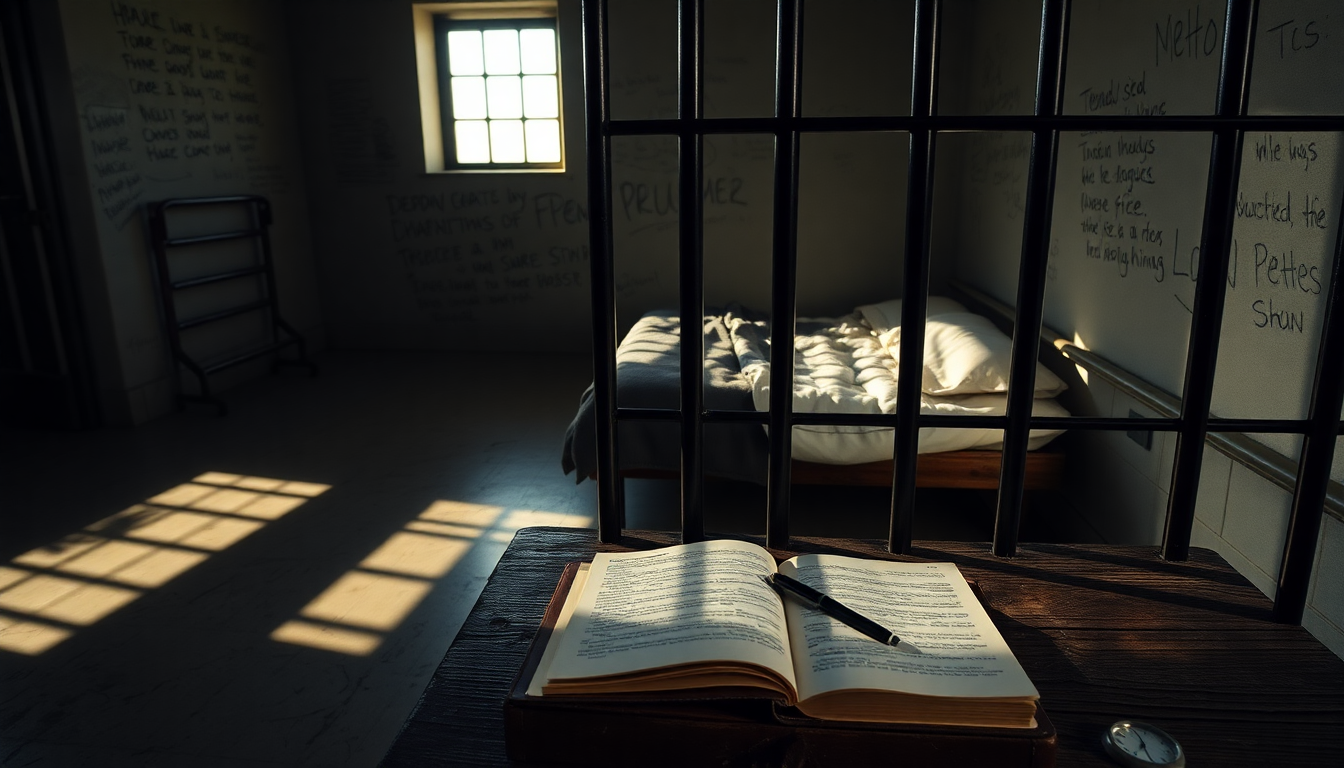Table of Contents
Ghislaine Maxwell, once a glamorous figure in high society and a close associate of Jeffrey Epstein, is now serving a significant prison sentence for her role in sex trafficking. As we turn our attention to her life behind bars, many are left wondering: what motivates her behavior in prison, and could she have a strategy up her sleeve for appealing her conviction? Former Palm Beach County State Attorney Dave Aronberg doesn’t hold back, labeling her as the “devil’s accomplice.” He suggests that her seemingly good behavior might just be a calculated move to negotiate with the Department of Justice.
Ghislaine Maxwell’s Life in Prison
Reports indicate that Maxwell has been attempting to rebrand herself while serving her 20-year sentence. Inmates describe her as calm and approachable, with fellow inmate Jessica Watkins noting that she seems at ease. The two often chatted during exercise sessions, but there’s an unwritten rule among inmates to steer clear of discussions about legal cases—nobody wants to be labeled a “snitch.” This illustrates the intricate social dynamics that unfold within prison walls.
What’s intriguing is Maxwell’s apparent focus on helping others. Watkins mentioned that Maxwell offered legal advice and assistance to her fellow inmates, guiding them with necessary legal forms while working in the law library. Could this supportive behavior be a strategic move to build alliances and gain favor among her peers? Additionally, her commitment to sobriety and avoiding recreational drugs might be her way of staying out of trouble and keeping a positive image.
Legal Implications and Potential Outcomes
As Maxwell navigates her prison experience, the implications for her legal future are significant. Aronberg highlights that her good behavior could sway federal prosecutors, potentially making them more receptive to her claims. Recently, she met with Deputy Attorney General Todd Blanche, prompting speculation about her ongoing negotiations with the DOJ. What exactly are they discussing? While the details remain under wraps, these conversations could play a crucial role in shaping her future.
Maxwell’s legal team is not sitting idle; they’ve submitted a petition to the U.S. Supreme Court, aiming to overturn her conviction based on an alleged agreement made by Epstein that promised her immunity from prosecution. This claim adds another layer to the complex legal strategies at play, resting on the principle that the government must uphold its commitments, despite shifting political landscapes or judicial interpretations.
Public Perception and Future Prospects
The public’s view of Maxwell continues to be influenced by her past actions and current situation. Critics, including Aronberg, assert that her status as a convicted sex trafficker complicates any narrative of redemption. The scrutiny of her prison behavior is a double-edged sword: while it might strengthen her case for clemency, it also raises doubts about her true intentions. Can someone with such a troublesome history truly reform?
As the legal landscape shifts, all eyes will be on Maxwell’s forthcoming testimony and her ongoing negotiations with the DOJ. The outcomes of these developments could set significant precedents for similar cases in the future. For now, we remain focused on the intersection of Maxwell’s prison life and her legal maneuvers, as she attempts to reshape her narrative amid the shadows of her past.


